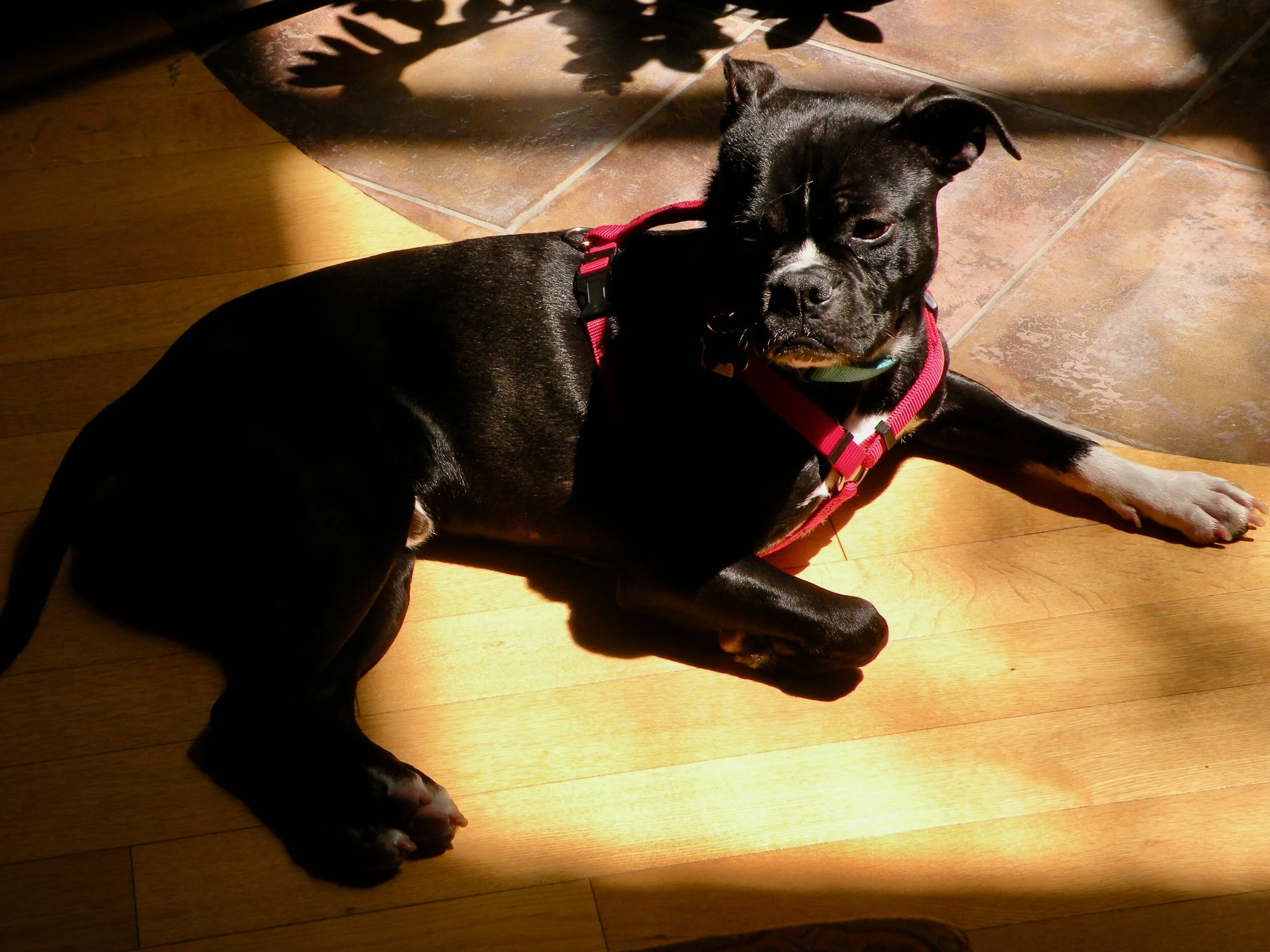My wife’s and my moving process has evoked all manner of grief and anxiety.
Some joy has accompanied the distress; I learned that it can be more gratifying to make gifts of my artwork than to make them.
Occasionally, however, mining our nooks and crannies to clear space for our future lives has been like plowing through an emotional mine field.
Rummaging through ceramic planters and bric-a-brack on our rooftop patio last Tuesday, I uncovered a large plastic pan that my wife and I used to train our first dog, Louie, to potty indoors. After Louie’s third biting episode — despite countless hours of behavioral intervention — we decided to give indoor potty training a chance.
We lined the box with natural sod, sprayed it with “miracle attractant” and even seeded it with his own poop. Nothing worked. We were resigned to the reality that we had to take Louie outdoors to potty — a perilous venture given that we had to be on high alert for any possible triggers to his fear-based aggression.
Finally, the day before we brought Louie back to the adoption agency to be re-homed on a horse ranch, Louie spontaneously peed in the box. My wife and I laughed and cried at the timing of his success. By this time, our lives had shrunk to the precise square footage of our condo. We only had room enough to let go.
My eyes welled up as I picked up the now rotting potty box, carried it down three flights of stairs and gently laid in in the dumpster. I couldn’t just “toss” something away that provided even just one honorable service.
Okay . . . I’m a little crazy. What’s not crazy is how grief over one’s losses — including the loss of a pet — can be roused by a simple, unassuming act of living. And, how that grief can release a torrent of what ifs and If I had only . . . even after all this time.
After making my dumpster deposit, I trudged up the stairs, walked into our condo, and wrapped my arms around my wife. I shared my discovery of the potty box and the funereal chore that followed. We both spoke wistfully about Louie. My wife wondered if things could be different if we had him now. I relived that awful moment we watched Louie being driven away in the adoption agency director’s car; his paws perched on the headrests, his expectant looks at us through the rear window, Louie’s sweet face getting smaller and smaller until the director turned a corner and they disappeared, the asphalt searing our knees as my wife and I melted into each other’s arms.
Four years later, after much grief counseling and soul searching, I contacted the agency director and asked whether she would contact Louie’s forever parents and request a supervised visit with my wife and me. She said she’d reach out to the family. After a month without a response, I wrote another email. Silence.
My heart sank. I’d waited too long. Louie’s parents refused and the director didn’t know how to break it to me. We didn’t deserve it because we “gave up on him.” Louie was dead.
Three years after that, my wife and I verge on the biggest transition of our lives: moving to a community far flung from family and friends — and from our boy who may be happily streaking on the heals of a galloping palomino at this very moment.
Along with our boxes and bags of stuff, we carry those weightless intangibles: the blessings of all whom we’ve touched and been touched by — including a precocious pup who taught us that the intensity of our grief is directly proportional to the depth of our desire for him to have a better life.

